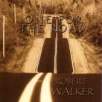Where do you stand, who are you?
Guitarists concentrate on the improvement of their technical abilities from the
beginning of their musical development. Of course this is important! Your technical
abilities on your instrument influence the way you can express yourself while
playing.
Practicing hours and hours... arpeggios, scales, chords. We're all familiar with that.
Some perfect their playing and go to a scool like GIT in Los Angeles, or another music school. Some don't need any school, they perfect their technique by
themselves.
So there are a few guitarists who don't need a huge effort to reach a high level.
Others have to work a lot and may never reach the level they seek.
I remember practicing a ten finger tapping lick (one of those - I thought a
guitarist has to play!) The technique was completely new to me, and I practiced
and practiced. Then I realized that in the style of music that I play there wouldn't
be enough space to use this one amazing lick. So I went back to concentrate on
those things that are much more comforting to me... the songwriting.
Nevertheless, I still practice that tapping technique... but once in a while.
If I were a craftsman in music, I would say it is really important to play in any style
at a high level. As a musician who is called for a studio recording for some famous
artist, it is necessary that he could fit into any musical situation (and in a
minute!).
Then there is the guitarist who is a master in his style. He is able to thrill and excite his
audience with his expression and his phrasing. Maybe he never had much to do with
all the other musical styles, and has never been at GIT, but this style is his
playground. He is able to transfer any melody in his head to his fretboard. He
always wrote songs and melodies from the time he began to pick up his guitar in his
younger years. He didn't care so much about the new "Top 40" songs. Music always
ment so much to him, much more than the goal to become a rock star.
Yes, I know there are a lot musicians who are both songwriters and craftsmen, but I
think most guitarists fit into one of these two types.
I would like to give those who like to write songs some advice first.
It doesn't matter whether it's a vocal song or an instrumental, it always has to
have a theme. And that's the important thing, that theme has to be expressive. Don't
start writing an instrumental tune just because you learned a new fast lick, or an
arpeggio, it will be an exercise, but not a song. A song transfers something you
carry with you, that mustn't be a message (we have enough of them!), but a feeling a
state of mind - whatever.
You can also practice this. Take a vocal song, which does not have too many notes in
its vocal-line and transfer it to your fretboard. I did this with some folk songs
(i.e. "Love Sick" by Bob Dylan.) Andy Timmons did this with the Prince song "Purple
Rain", listen to it and play it.
The themes in vocal songs are short but catchy. In the Bob Dylan song
"Love Sick", the phrase, "I spoke like a child; you destroyed me with a smile" can be a
wonderful guitar lick. And there are many more out there.
So next step, why don't you sing your phrases, before you play them? It's not
easy, but a very good exercise. I always have a little mp3 player with me and late
at night at the weekends, when I'm going home there is sometimes a melody, a phrase, or a sentence in my head that I record. If it's good enough to become a theme I work on it at my studio.
Once you have a theme, you need the harmonies. At this point always remember that
too much movement in the harmonies make the song seem restless. If that's the
feeling you want to express, OK. But most chartbreakers and evergreens are built
upon 3 or 4 chords.
It is very helpful to know the musical theory behind the chords and scales to
harmonize your theme. But always trust your ears and not the book "10000 Unplayable Jazz-Chords" (I'm waiting for it, it is not yet released!)
Once you have the harmonies, play variations of your theme. Let it end on a
stressed note, the next time on an unstressed beat, start on a different note, etc.
And let your thoughts flow. There will come another theme that fits exactly with your
last one and all of a sudden you have the verse of your song.
Now you have to work on a bridge to your refrain and on an interlude and... and... and... But that's too much for this short article.
So in conclusion:
These are no rules! Work on it!
Stuttgart-born German guitarist Robert Walker started playing guitar at the age of 15, influenced by Rory Gallagher, Ritchie Blackmore and modern players such as Joe Satriani, Andy Timmons and Steve Vai.
His latest CD is entitled "One For The Road".
